Meta Poured $25 Million Into Black Creators. Then the Money Dried Up.
As DEI initiatives face the chopping block, four participants of Meta's "We The Culture" program share where they are now
blog.forty-three // What you’re about to read is a story I’ve been reporting and writing for the last three months—a story that appears in our upcoming print edition of Creator Mag.
First, though, I want to reiterate something. Our mission with Creator Mag is to Make the Internet Feel Smaller. More accessible, less omnipresent.
Part of accomplishing that mission is through the essays and interviews we share every week; the regular, in-person gatherings we host at our studio; and the creative projects we take on, like our new apparel collection with Jesse Nyberg.
Yet the other part is telling deeper stories we find meaningful, and necessary—particularly as creators wield increasingly outsized influence across our culture and information ecosystems.
Our thesis is that you can do both. That you can collaborate with your friends, and you can save room for the harder-hitting stuff, too.
Still, Creator Mag is an indie publication started (and owned) by our team. On my end, I’m a full-time, independent journalist. And in order to take bigger swings on the stories we tell and the projects we take on, we need your support.
The best way to do so: become a Creator Mag “founding” member. By signing up for an annual subscription between now and the end of March, you’ll receive all four print editions, tickets to our quarterly Block Parties, and perks like exclusive blogs and apparel discounts—all for just $5 a month.
Annual subscriptions not only help make our work possible—they also serve as a guarantee as we set a budget for the year. Our goal was to hit 25 annual subscribers by the time our new issue releases on March 29. This time last week, we were at 10; today, we’re at 21.
You can help us close the gap by signing up here. And if you prefer one-off purchases to subscriptions, no sweat—you can preorder the print here.
Finally, it goes without saying, but if you can’t currently support us financially…that’s okay! Sharing this blog with a friend—or following along with our journey on YouTube—goes a long way in helping us out, too.
Alright, now on to our coverage of Meta’s “We The Culture” program—and the legacy it left on its participating creators.
— NGL
P.S. If you’re having trouble reading this story in your email, you can open it in your browser here.
P.P.S. Last blog, we spoke with designer and creator Jesse Nyberg—and unveiled our collaborative, “Keep It Moving” collection. You can read it here.
On Friday, January 10, Mark Zuckerberg strode into Joe Rogan’s podcast studio in Austin, Texas to lodge a very specific complaint he had with Corporate America. The way he saw it, companies needed to channel more “masculine energy.” “I think having a culture that celebrates the aggression a bit more has its own merits that are really positive,” the Meta CEO said.
His evolution from Zuckerberg to Zuckerbro has been well-documented. There was the MMA training, the curly hair, and the verbal tit-for-tat with his fellow billionaire, Elon Musk, which included rumors of a cage fight to be held at the Colosseum (ya know, the one in Rome). And who could possibly forget the chain?
Even so, just ten days before Donald Trump’s second inauguration, Zuck’s appearance on The Joe Rogan Experience was a harbinger of what was to come, as DEI became an assailable buzzword directly in the firing line of the new administration.
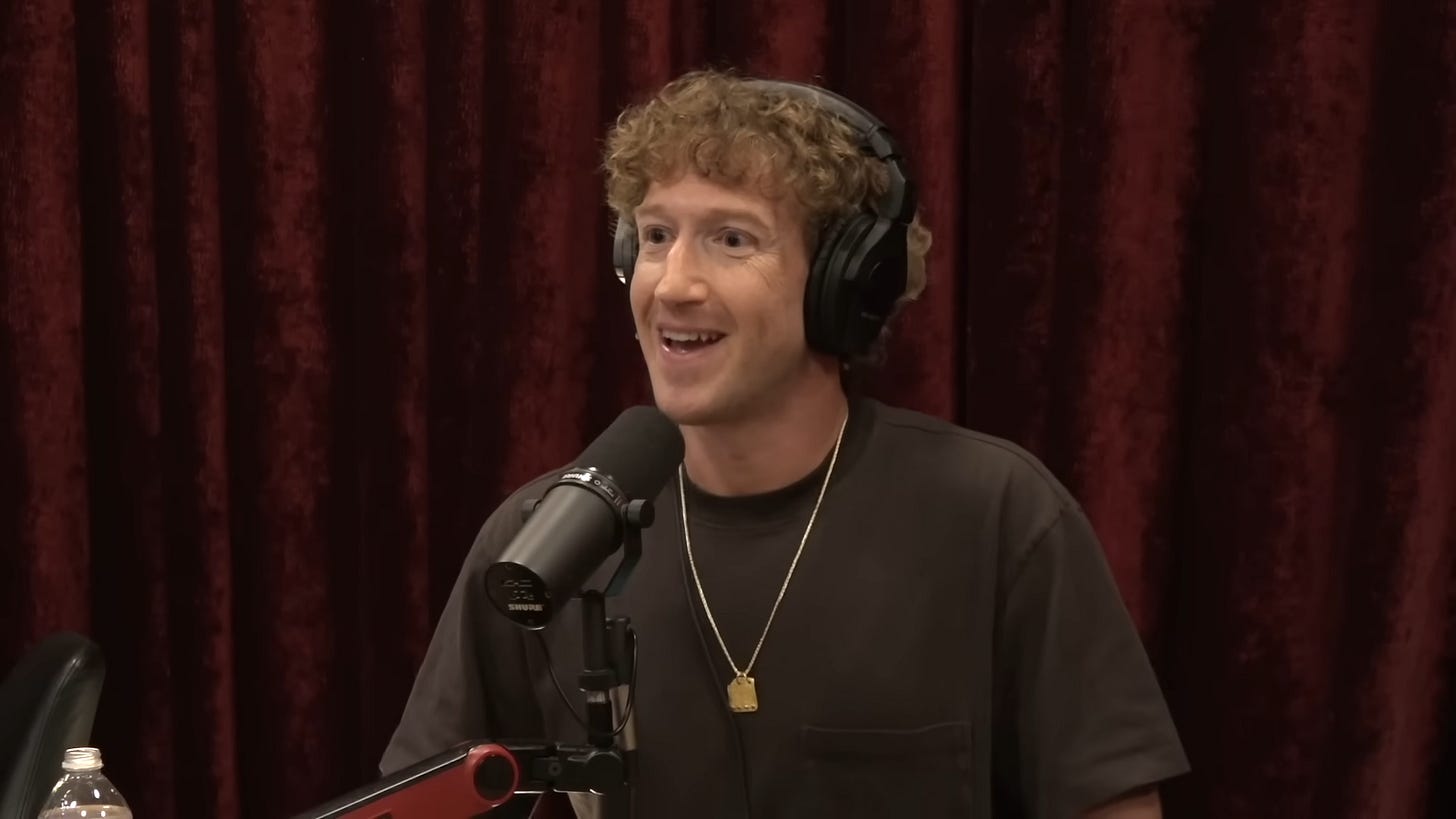
If this is your first time hearing the phrase “DEI,” here’s a quick primer: “Diversity” is the presence of people from different backgrounds, differences that may include race, gender, or religion. “Equity” means providing unique resources and opportunities to ensure people reach an equal outcome. And “Inclusion” means offering more than just a seat at the table — it means fostering involvement in actual decision-making.
One of the arguments against DEI often seen or heard in online discourse is that all the money spent on diversity initiatives is wasted. It’s a pile of cash that wins brownie points with the public before being locked in a closet — where it sits, and festers.
The ironic part about Zuckerberg’s recent culture war flag-planting is that his company has actually found a lot of success with its own DEI initiatives. Meta doubled the number of women in their global workforce from 2019 to 2022 — a figure they publicly touted. Over those three years, the company saw its Q4 revenue increase from $21 billion dollars to $48 billion (a growth of one hundred twenty-nine percent).
It’s been proven time and time again that diversity isn’t just a good look for businesses — it’s good for their bottom lines, too. But what about when DEI initiatives also succeed on an individual level, providing opportunities to those from underrepresented backgrounds and helping them grow?
What does that success look like?
Among the creator community, it’s not exactly a secret that Black creators earn less via brand partnerships than their white counterparts — a staggering thirty-five percent less, according to a 2021 study by MSL and The Influencer League.
Another open secret: the act of “shadow-banning.” This is when social media platforms mark creators’ posts as problematic, but not enough to remove them from the platform.
Given algorithms are trained to deprioritize shadow-banned creators, the affected creators’ engagement will often plummet. In practice, shadow-banning disproportionately affects specific demographics because the “unconscious biases of the developers are embedded in the systems they create,” according to Forbes.
These statistics and trends were prevalent on Joel Bervell’s mind when he sent over an email response for this story. Joel, who is Ghanaian-American, began researching racial bias in medicine while enrolled in med school. The more he learned, the more he decided to share on shortform platforms like TikTok and Instagram, unpacking “medical concepts and highlighting disparities” (as he puts it) for a general audience.
While Joel worked towards his MD, his videos began reaching wider and wider audiences, and he decided to apply to a program called We The Culture (WTC) in 2022 — an initiative Meta started to invest in and amplify Black creators. “My impression of the program was that it was an opportunity to not only elevate my work but also connect with other creators who were using their platforms to drive change,” he told me over email.
I first heard about We The Culture in 2023. My friend, Donovan Beck — an author, poet, and creator — introduced me to the program’s founder, Michelle Mitchell, at the annual creator convention VidCon. Michelle serves as Head of Culture & Content at Meta; previously, she was an associate general counsel at the company. While the Instagram-branded, fluorescent-pink lounge at VidCon wasn’t exactly the ideal space for in-depth conversation, it was immediately apparent how much intentionality Michelle (and her team) had infused into We The Culture since its inception in 2021.
“I wasn’t just getting paid to post my art…I was also in rooms I otherwise wouldn’t have been in.” —Donovan Beck, Poet & Author
The program had quite the impact on Donovan’s life these last several years, too, something he’s mentioned to me several times in conversation. WTC was an opportunity to take his career as a creator seriously — while still a college undergrad. Following his graduation in the spring of 2023, he now works as a communications director at MIT; Simon & Schuster just published his second poetry book on March 11.
In tracking the current rhetoric around DEI before (and since) the 2024 presidential election, I kept thinking about Donovan’s career trajectory, and the success he’s quickly found in his early twenties. So I decided to speak with other creators who participated in WTC, to better understand what actually happens when companies like Meta put their money where their mouth is.
Here’s how We The Culture worked: Meta (then still called Facebook) invested twenty-five million dollars into the program — and welcomed in over one hundred and twenty Black creators for its first cohort. “It’s our responsibility to ensure we’re supporting equal outcomes for historically-underrepresented communities,” the company, upon announcing the program, wrote on its blog.
The company made it a priority to feature WTC participants across its marketing campaigns, even spending on original programming from select individuals. Meta also gave each creator in the range of roughly fifty to one hundred thousand dollars and set benchmark expectations around sharing content consistently on its platforms — specifically, Facebook and Instagram.
While the check meant a great deal, Donovan told me that WTC went much deeper than money appearing in his bank account. “I wasn’t just getting paid to post my art,” he said. “I was also in rooms I otherwise wouldn’t have been in.”
As part of the program, Donovan sat in several product meetings with members of Instagram’s engineering and design teams. They openly asked for his thoughts — as well as his perspective as a Black creator — on how to shape new features on the platform. These experiences helped Donovan think critically about how tech companies build and communicate their products, experiences that he directly draws upon when conducting research in his current role at MIT.
For comedian Lonnie Marts III, “creator” suddenly became his full-time job when he joined WTC. Lonnie was a Division II All-American in Track and Field; after graduating from business school with a MBA, he felt stuck working a “nine-to-five” at a hotel. Posting videos on TikTok became a creative outlet — particularly when he lost his job due to the pandemic. And when Instagram launched its own competitor, Reels, in 2020, Lonnie went all-in.
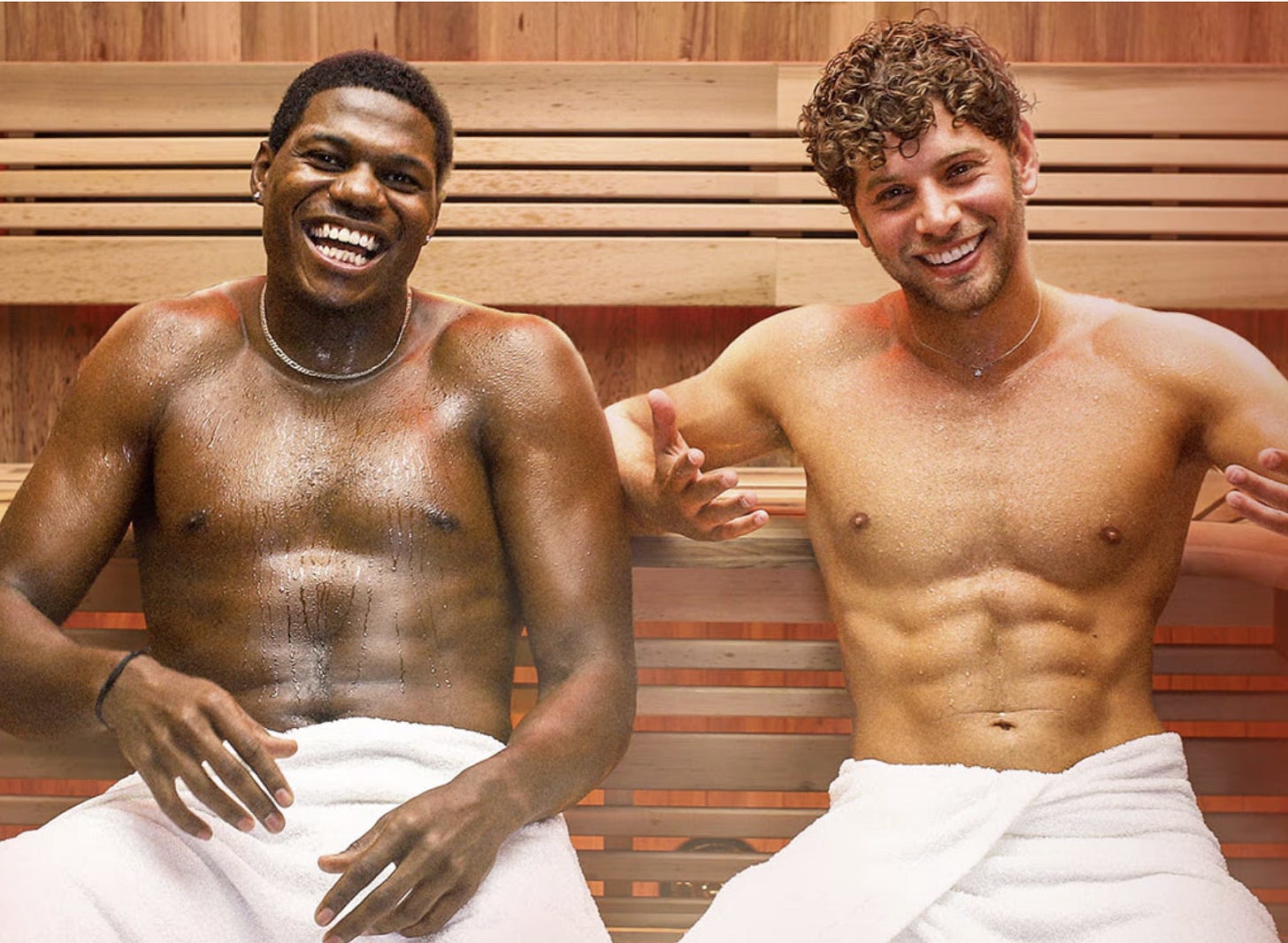
Through growing his audience on the platform, he met several people on the Instagram team. He was invited to We The Culture when it launched, and he credits the program with teaching him how to make his career path sustainable. “There was a requirement to post every week…at that point, I was already posting that much,” Lonnie said. “But I was still trying to figure out what to make and who I was making it for, because I had blown up only, like, a year before.”
“[WTC] forced me to answer these questions and solve these problems…so I could grow a scalable team and business,” he continued. “It just allowed me to have the bandwidth and exposure that I literally would not have had otherwise — I could build things slowly and set myself up for the next five years.” These days, along with previous work with sponsors such as Porsche and Nickelodeon, Lonnie also co-hosts an online E! News show called “Hot Goss.”
A fellow comedian, Daphnique Springs, is a stand-up who started her career in the early 2010s — and has toured with comedy legends like Katt Williams. In 2012, she started filming videos on Vine with the platform’s early stars, including Simone Shepherd and King Bach.
“At that time, standup alone was something that could take you to new heights — social media hadn’t made a large imprint yet,” Daphnique told me. “So I dropped out of that race in 2013 maybe? And then in 2017, [creator platforms] started to expand past just Vine.”
She began posting more videos on YouTube and Facebook as their monetization programs became more robust. An increase in opportunities and visibility came with it, and in 2021, Daphnique’s partner manager at Facebook encouraged her to apply to We The Culture.
“To be recognized by a company like Meta, who’s saying not only are we going to push your reach, we’re also going to give you resources…I thought it was absolutely amazing,” she said. “Our culture is so strong: music, entertainment. Even in medical fields, we’ve been passed up for patents and stuff. But Black people are still inventors — especially Black Americans.”
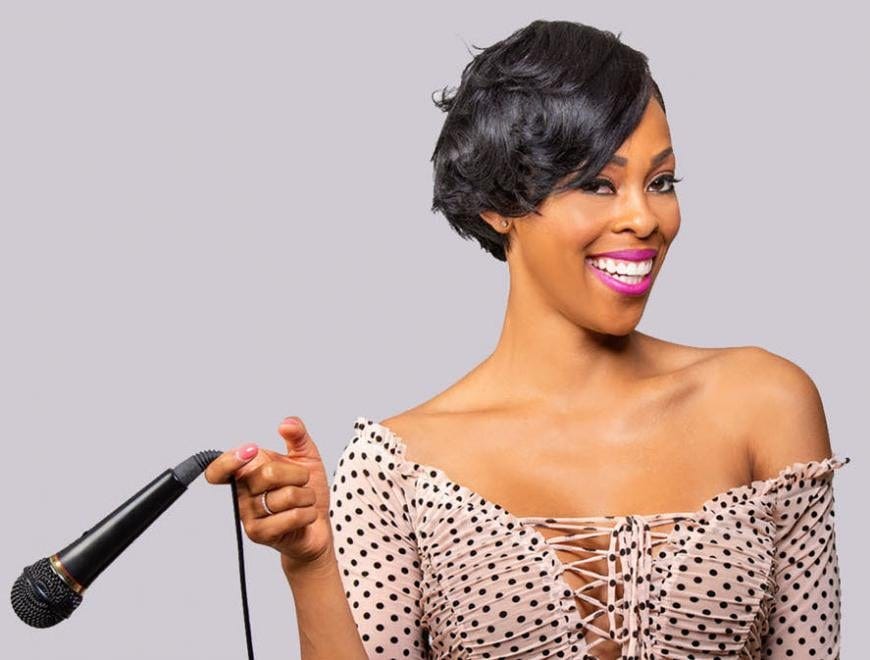
Daphnique stayed on for multiple cohorts of WTC, and she credits the program for hosting events that allowed her to meet more “industry people” — including the head of Instagram, Adam Mosseri. She’s served as a mentor for up-and-coming Black creators, and even spoke at conferences like South By Southwest on behalf of Meta.
For Joel Bervell’s part, he now works as a science communicator and podcast host while finishing up his residency. “[We The Culture] gave me credibility when I was approached for…speaking opportunities and partnerships that have continued to shape my career,” Joel wrote to me. “It reinforced that social media isn’t just about entertainment; it’s one of the most powerful tools we have to shift narratives and push for systemic change.”
Out of all the creators I talked to who participated in We The Culture, every single one only had good things to say about the program. It advanced their career goals, gave them more confidence in an industry littered with structural biases, and introduced them to more people who looked like them.
So why did Meta pull an apparent one-eighty less than a fortnight into 2025?
On January 10 — the same day that Mark Zuckerberg appeared with Rogan — Meta terminated its major DEI programs, including for hiring, training and picking suppliers. Additionally, Maxine Williams (a highly-respected executive who had been Meta’s chief diversity officer since 2013) was moved to a VP role focused on “accessibility and engagement.” If you open Williams’ LinkedIn profile — as well as her page on Meta’s website — the new position has no actual description attached.
Out of the four creators I spoke with, their opinions on Meta’s recent decisions were split. It’s important to note here that We The Culture had already stopped adding new cohorts by the end of 2023, a year before the presidential election — something Daphnique mentioned in our conversation. That original twenty-five million dollar investment from 2021 had already appeared to dry up.
Nevertheless, when I began reporting this story, users could still access We The Culture’s various pages across Instagram, Facebook, and even X. They were still up-and-running, providing various resources and promoting Black creators involved in the program.
Now, when you open those pages, all three links are dead.
“I’ll continue doing the work, with or without these programs, because the need hasn’t gone away. If anything, it’s even more urgent now.” —Joel Bervell, Medical Graduate and Science Communicator
Daphnique told me that while she doesn’t like seeing DEI programs disappear across the board, she hasn’t seen any drops in her on-platform monetization, and she does feel like Meta is staying true to the ideals that We The Culture put forward behind-the-scenes. She recently flew to the company’s offices in New York to give feedback on new features for Threads, Meta’s text-based Twitter competitor. While she didn’t specify when this occurred, per our conversation, it sounded like she’s still involved across various creator programs at Meta.
“Meta has created a streamline for wealth for me and for my family, and for that, I will forever be grateful,” Daphnique told me. From her point of view, the program — just like many companies’ recent DEI initiatives — emerged after George Floyd was murdered by police during the heights of the pandemic in 2020. “The world kind of stopped a little bit [then],” she said, forcing people to consider “what was happening to Black Americans.”
“I never expected [that moment] to be long-term. I didn’t,” Daphnique told me. “But I got two great years that not only changed my life, but it also changed some of my peers’ lives, and some of my friends’ lives.”
Lonnie shared a similar sentiment. “I mean, this was one of those waves,” he said. “And I feel like it was a life moment that was unique — not a freak accident, but, like, you know, the tide in the ocean.”
“It brought this wave that we helped create. But it could never be permanent, and I think Michelle [Mitchell] tried to make sure we all understood that,” Lonnie followed up. “I’m hopeful things can get better, but the more I see, the more it feels like Meta was just, like, greenwashing — but for racism. As more time passes, I feel like they just care about the stock price, you know?”
I reached out to Michelle to see if she’d be interested in sharing her perspective for this story. We traded a couple emails, though the thread ran cold by the time of publication.
Still, Lonnie and Donovan both expressed faith in Michelle’s ability to continue fighting from the inside, even as the company’s public stances play out as political theater, swinging in tandem with the dominant color of the electoral college. “Michelle’s desire to try and make lasting change in this environment for Black and brown people — sometimes without all the necessary support — is absolutely incredible,” Lonnie told me.
“If there is ever a time where a big company says, we’re going to set these things back, it’s sad,” Donovan added on. “But look two steps down, and there’s still Michelle, this actual person. And this fight is still going on.”
As for Joel, he ended his email on a reserved, yet forward-looking note. “For creators like me who focus on racial equity in healthcare, these rollbacks don’t just affect funding or visibility — they affect the reach of critical conversations that are literally life-saving,” he wrote.
“Without institutional support, it becomes harder for underrepresented voices to break through the noise,” Joel followed up. “That said, it only reinforces why independent creators and grassroots communities are so important. We can’t rely solely on corporate initiatives to push for change.”
“I’ll continue doing the work, with or without these programs, because the need hasn’t gone away. If anything, it’s even more urgent now.”
This story appears in our upcoming print edition of Creator Mag. You can preorder a copy here.
Thanks for reading! Shoot us a reply, comment, or DM if anything resonated with you in particular—we respond to them all.






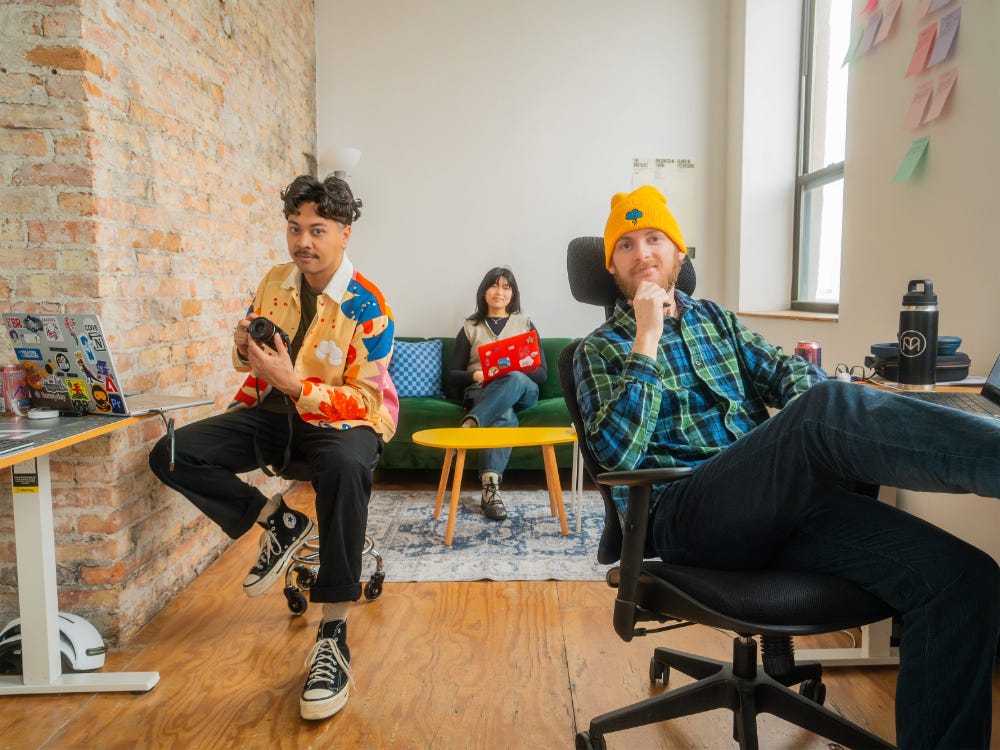

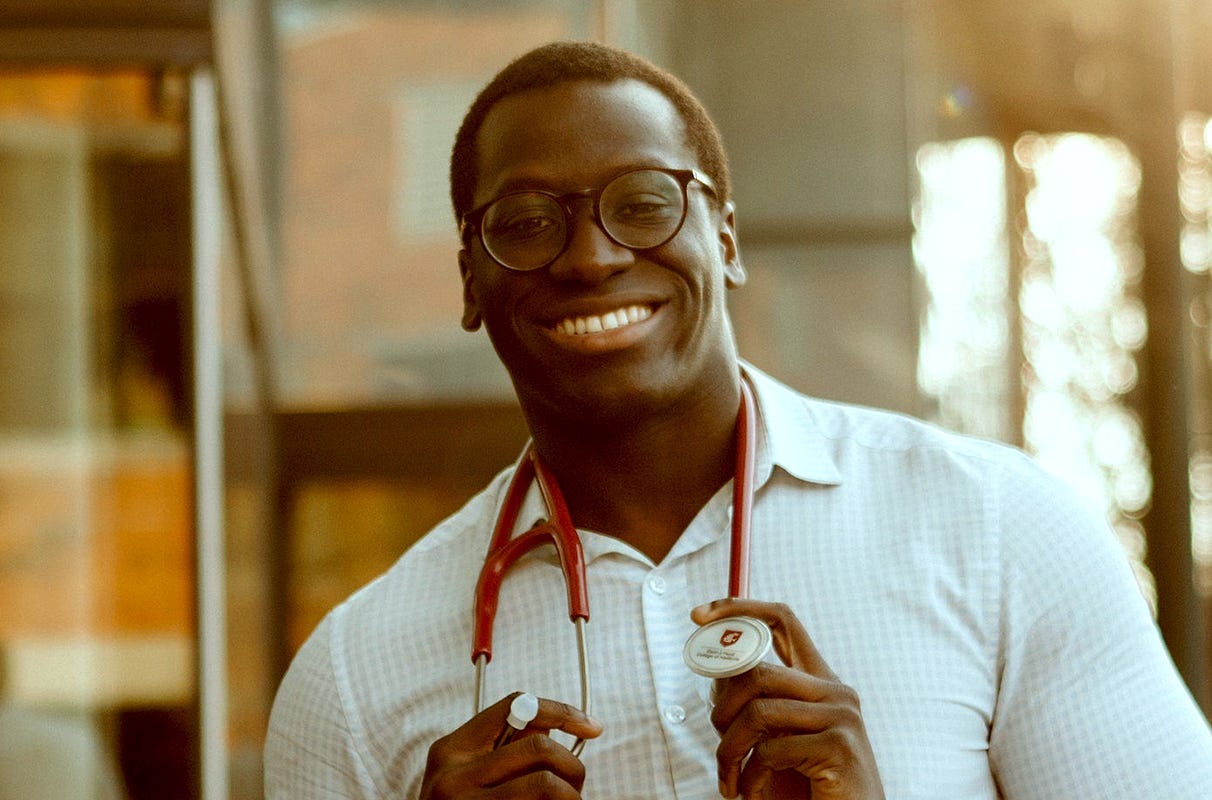
It was an honor to be a part of this story and seeing you share the importance that WTC and programs similar to it have had on creators. I fully agree with everything Lonnie, Joel and D said, its never been more important for the work that we do than today!